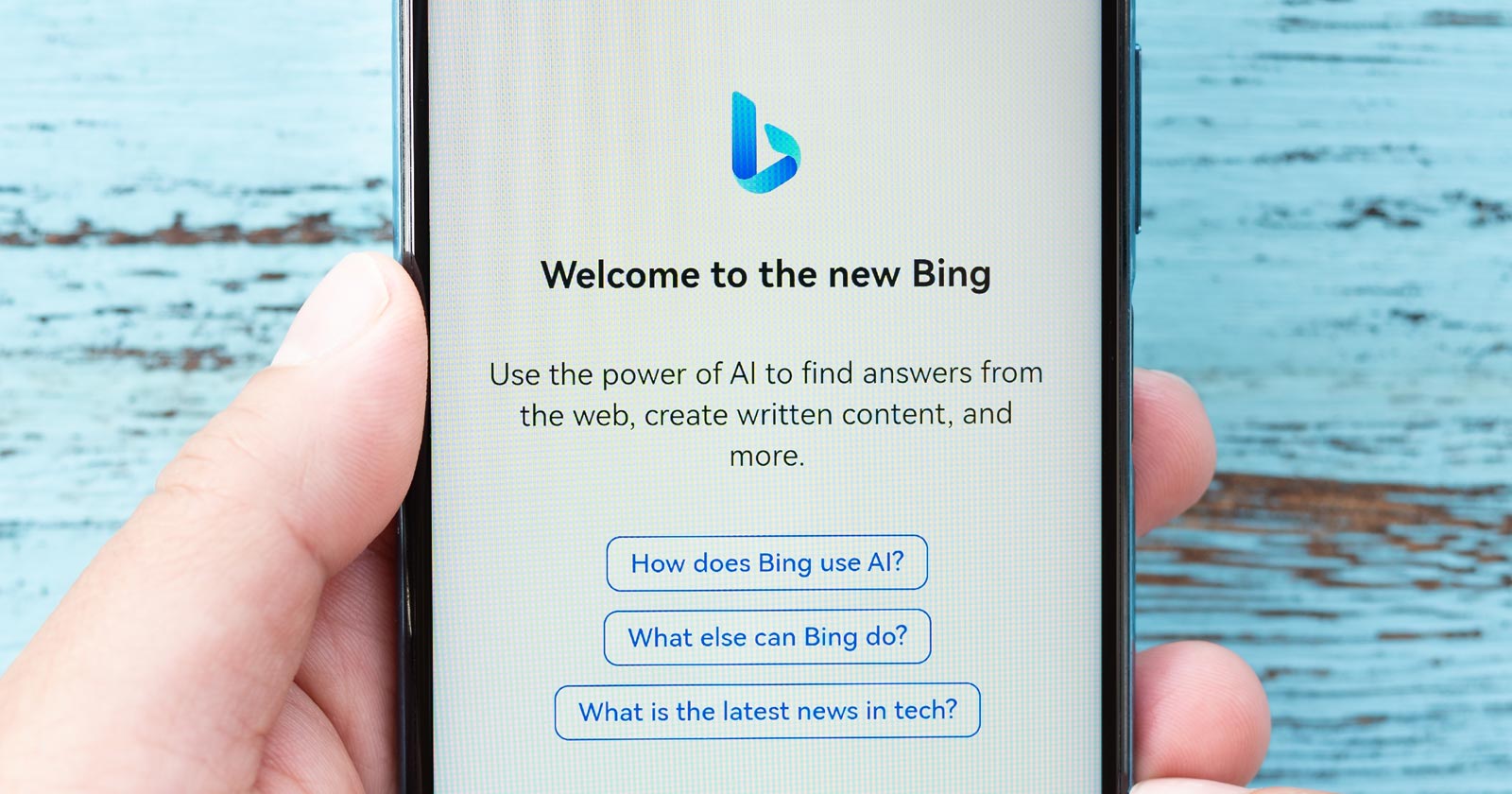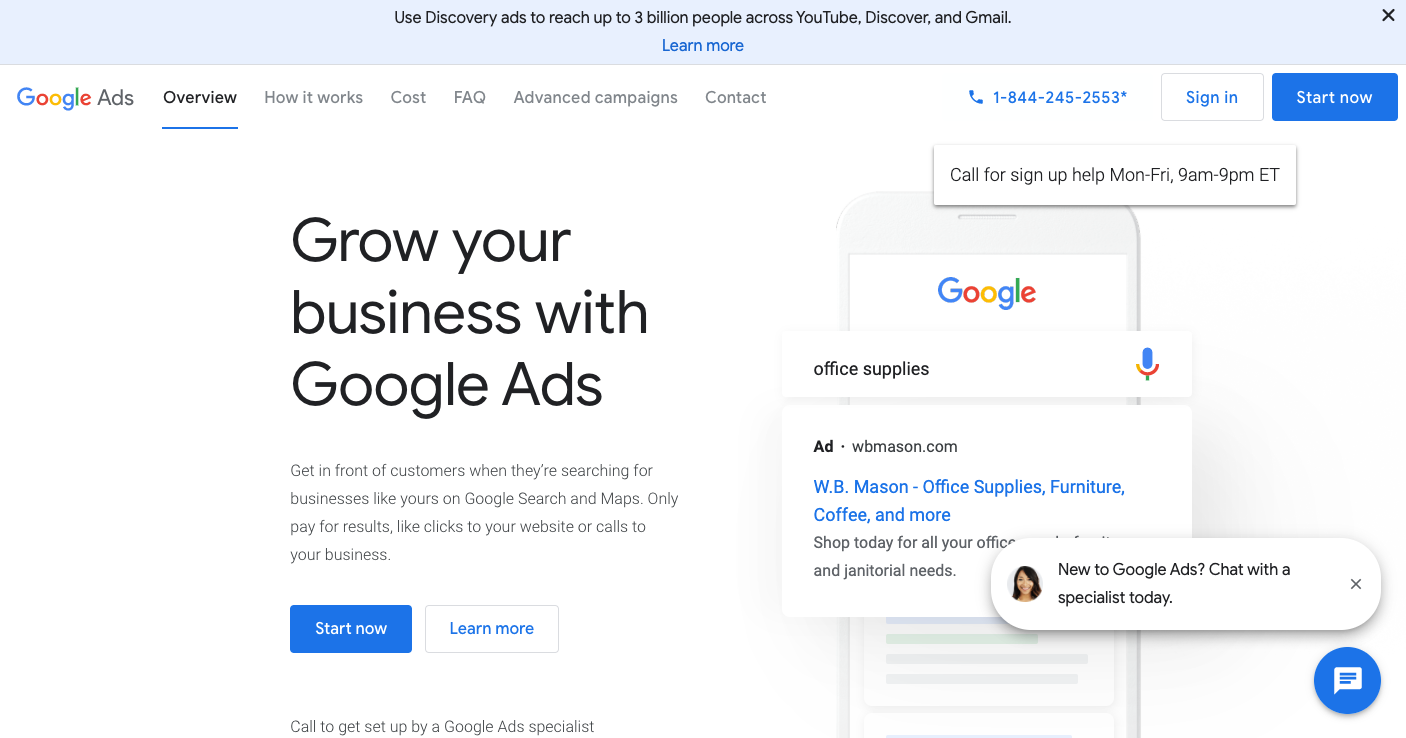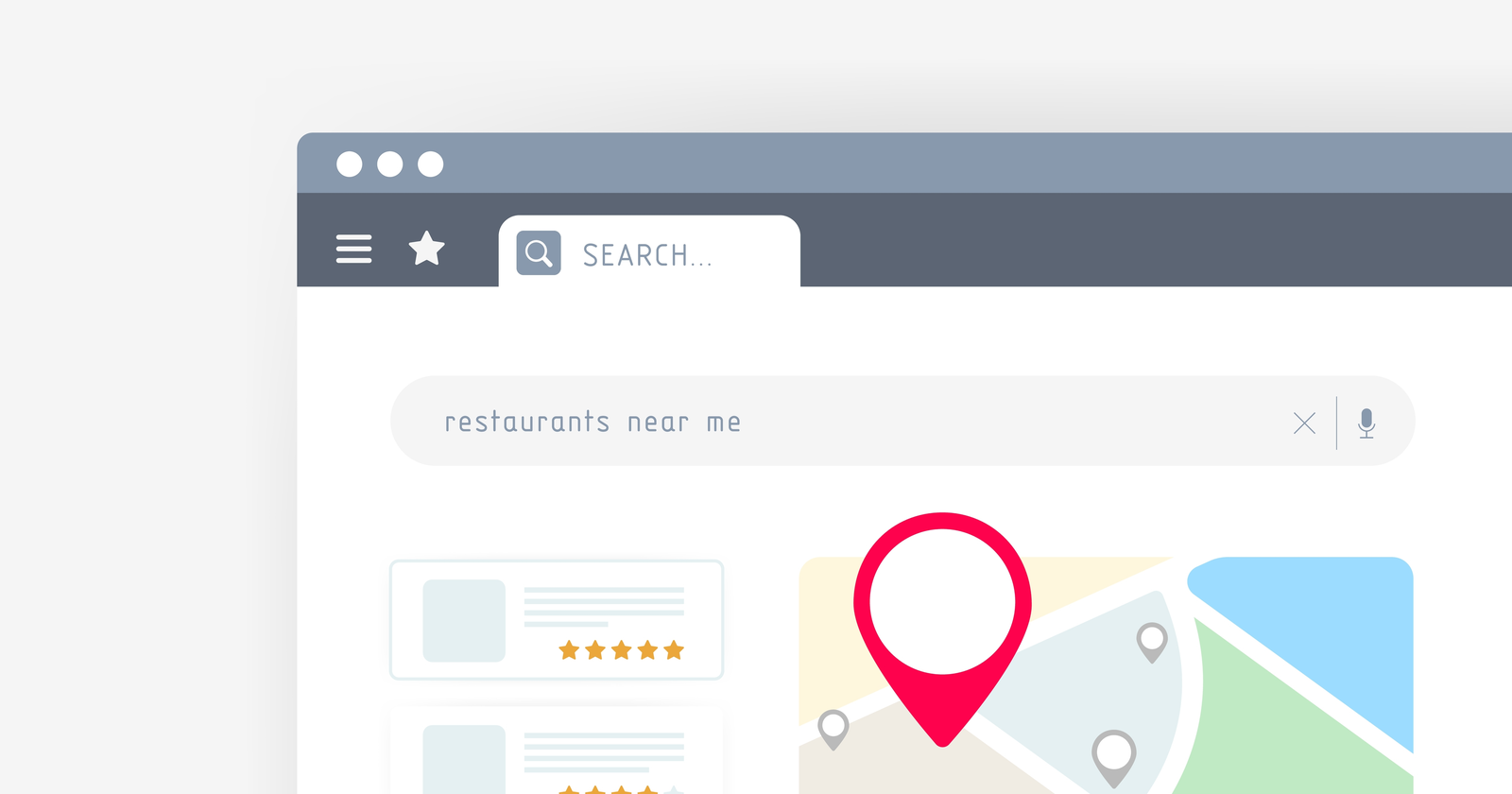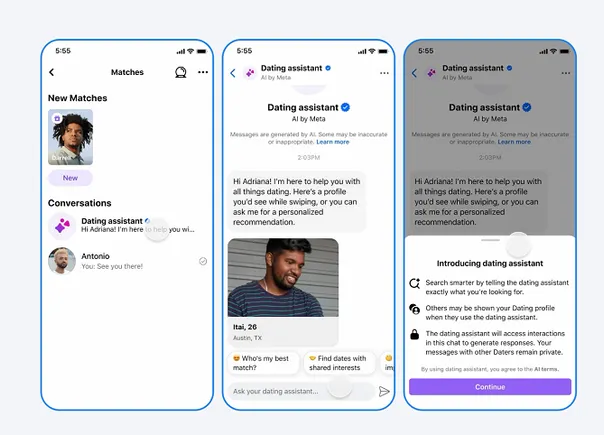Bing Explains SEO For AI Search via @sejournal, @martinibuster
Bing's Fabrice Canel offers insights about AI search and what SEOs should do right now to get ready for it The post Bing Explains SEO For AI Search appeared first on Search Engine Journal.

AI search is inevitable so it’s vital for SEO to understand everything about it. An interview with Bing’s Fabrice Canel revealed interesting insights about this topic with some takeaways that offer some insights on the future of search.
Fabrice Canel is the Principal Product Manager at Bing and because of his position there he is in the position to know more about AI search from the search engine side, something we don’t get to see.
Important Note:
It’s been called to my attention that the wording of the responses feel different. That’s because English is a second language to Fabrice Canel. He’s a native French speaker.
AI Search Clicks Are Valuable
Something of special interest for SEO professionals is his discussion about what host Jason Barnard calls the perfect click and what Fabrice referred to as qualified clicks.
I’ve noticed that contextual links are in some versions of Google SGE and is also a main feature of the search engine results pages (SERPs) of some of the newer AI search engines like Perplexity AI.
Bing AI search also shows citations to websites where users can dig deeper into the topic that is relevant to them at that moment.
Fabrice talks about how these links to websites that are shown to users from AI search are more valuable than standard links from a regular search engine.
He uses the phrase “qualified clicks” to refer to traffic to websites that originate from from AI search.
Fabrice (at the 6 minute mark of the video):
“Bing is all about satisfying the end user and sometimes it’s all about exploring the web.
But sometimes it’s all about understanding the web and providing this kind of experience where at the end we can learn the clicks to the website having extremely qualified clicks.
And this is something we’ve seen where clearly when people are clicking…
And this translates to a benefit for the end user, for the website more, certainly more, than [from a] search engine, typical search engine.”
What he’s saying is that there is more context in the interaction between users and Bing, which results in better answers and in turn better traffic, qualified clicks.
Why AI Search Clicks Are Better Than Normal Search Clicks
Fabrice explains in more detail why clicks from AI search are better than from a regular search engine.
He explains that user interaction provides Bing with more search query context, which in turn allows Bing to offer links to the exact site that offers the answers that the user is looking for.
Users provide so much query information that the click to the website is essentially a perfect click, the qualified click.
Fabrice answered:
“Yeah. So fundamentally, …we have abilities to do in Bing Chat what we don’t really have out of the box of in search.
It’s a little bit more time to really go deep in understanding the query, understanding what the query can return as results.
So this is all about at the end being able to have an orchestration between the queries itself and the ranking and the profile of a user to really go deeper in understanding what the user is looking for and retrieving from the set of content.”
These interactions are so rich in data about what users want that it allows Bing to make their search even better.
And the better Bing understands user queries the better the traffic that it sends.
What’s important about that insight is that it can very much apply to traffic from other AI search engines.
Let’s take that idea a little further.
If AI search engines understand what is asked of them, then they are better able to provide the correct answers. That makes offering ten blue links no longer necessary.
It very much resembles the interaction between humans, where one will ask the other something and receives a response.
Nobody needs to respond with ten answers, right? The same applies for AI search.
What’s extraordinary is that AI search not only helps users, but it allows Bing to become better in satisfying user queries.
Fabrice continued:
“…this new technology helps us to improve even faster and certainly better to satisfy even more users.
We see that the satisfaction of users at Bing has really improved even more in the last six months than before.
So this is continuous improvement of the technology.”
AI Search Is Not About Keyword Matching
Fabrice next speaks about keywords in AI Search.
He says that the technology is not in any way about matching keywords (terms) in the query to keywords on a webpage.
He noted:
“… the technology has evolved.
This is not about …term matching, this is really understanding the context of a query, the context of a user to really retrieve the best content on the internet.”
The AI search experience again resembles a conversation between humans, where when you provide an answer to a question, using the keywords in the question is not something you consciously do, right? Your focus is on providing an answer.
AI search understands the full context of the question and answers it, just like you would.
Ranking In AI Search – Role of Verbs And Keywords
Fabrice next says that keywords matter, not because the AI search engine is matching keywords to queries but rather, the keywords help Bing understand what the page is about.
This is an important insight. It reinforces one of the most important trends of the past several years about how SEOs need to be precise in communicating what a page is about.
Keywords matter to the extent that they tell the search engine what the page is about.
Fabrice explains [16:34 minute mark]:
“So the verbs of a user matter even more these days.
People want to say, I want to book a ticket to this thing and “book” maybe not really in the content of a page, but we know that it’s a booking activity.
So maybe this is all about retrieving the event itself where people then can book the concert.
So think technology really improve, don’t think about keyword …and so on, think about satisfying the user for a set of queries that they think they will do.
…obviously, if a customer specify a verb, this is important, but if a customer …do not specify a verb, then this is all about understanding the context of this query in this specific chat, of the ability to understand what the session was all about.
Because maybe you want to search, give me a restaurant…
Maybe we will give a list of restaurants near you and then you can say, hey, I want a vegetarian restaurant. Okay?
And then you have a list of vegetarian restaurants, or give me a vegetarian one and give me one that can accommodate 20 people.
So again, you don’t repeat the restaurant [can’t understand], you just continue the chat experience and we have a full context of the full session and helping to reply [to] your question.
And for search engine optimization, …It means at the end that you may care about keyword and you should care about keyword because we need to know that it’s a restaurant for vegetarian, we need to know that it can accommodate a large group of people.
But this is less about really matching this query. This is again, not really matching, this is matching what people are searching, looking for.”
What’s The Connection Between AI And Search Algorithms?
Jason Barnard next asks if the Bing chat algorithm and the search algorithm are the same.
Fabrice answers [19:35 minute mark]:
“This is an excellent question.
So first of all, in Bing Chat and search we benefit obviously of a big index.
It’s not, let’s say, a large language model store that you interact here.
Here, we benefit from not only this new tech…, but also by having deep interaction with the index itself.
So mean that …we are doing multiple queries and retrieving from this query the best content on the Internet. It’s not a static set, it’s a dynamic set.
You benefit from having the latest content and index and we have technology for that to make sure that content can be indexed, latest content can be indexed in seconds.
But it’s really this kind of interaction with the best content on the Internet that we can retrieve and we do multiple queries to retrieve.
So overall I will share that the technology is the same, but in chat there is even more complex queries that are done to really retrieve the content, analyze the content.
Chat give us access to more time to do a little bit more things, understanding, also interacting deeper with the user via the chat experience and session, where we can also not only suggest text, suggest verbs that the customer can do to continue the discussion with a search engine to retrieve the best content on the Internet.”
Will Ten Blue Links Disappear?
The ten blue links have been going away as a standard in traditional search engines for many years, more than a decade.
Where does the ten blue links paradigm fit into AI search?
Surprisingly, ten blue links still have a place in AI search.
Fabrice answered [30:55 minute mark]:
“Yeah, again, personally I do not believe that.
Again, don’t know if mindset of people evolve and they really prefer chat, why not?
But again, I still feel that there is a set of queries where the ten blue links are really satisfying the user today.
And so this means again you query for specific query, navigational query.
You just certainly don’t want at least me, I don’t want to have an experience where there is asking me more questions.
No, no, I want to click this link, this is the link.
I know where I want to go. I don’t remember the domain names, but I want to go there.
And so this is kind of a directory address book where okay, I know this is perfect. Thank you. I’m done.
I am visiting the site now.
And this is then you don’t really need a huge experience and you need really this navigational… And so blue links satisfy your need.”
The takeaway then is that there are certain contexts where users need the ten blue links and that it doesn’t make sense to drag the full chat experience into those kinds of queries.
Two Things To Do For LLM Search
Fabrice later discusses what SEOs should do for AI search.
He basically says to make it easy to get indexed because building an index on the LLM side can take years.
The first thing is to adopt IndexNow for incredibly fast indexing. On the AI side, the LLM can take months to years to be up to date.
Fabrice said:
“…using IndexNow, you will get your content indexed in seconds.
…In LLM, it takes weeks, months, more likely years to build the new LLM tech.
So this is important for the SEO community because you have to do it right now, as soon as possible, to be a part of the next LLM version.”
The second thing that Fabrice suggested that the SEO community do is to make the content easily accessible by search engines.
Fabrice continued:
“Second is …have your content based on a basic template.
Don’t do the craziness things with plenty of Ajax calls to retrieve the content that the developer developing that says it will be great, but for a search engine it will be a disaster.
Machine learning is all about learning from a set of documents and then aligning to some judgment.
The more basic you are, the more standardized you are, the better it is for the search engine.
And as part of this you really want to help the content to be understood by search engines, means not only add HTML tags, the appropriate HTML title to differentiate the headings from the paragraph. And so on.
But add structured data to help the index and help the LLM to really understand what this is all about. What your content is all about.
So all this information is leveraged, real time as soon as we call the page for the index.
LLM has a different lifecycle. …LLM are not built at the same lifecycle as building an index.
Building an index is real-time. In an LLM it takes weeks, months, more likely years, to build the new LLM tech.
So this is important for the SEO community because you have to do it right now, as soon as possible to be a part of the next LLM version.
If you think of the old search engines, this is kind of the lifecycle that you need to target.
Fundamentally this about doing the right thing now, today.
And …doing the right things will benefit not only for search engine indexing, but also for LLMs.”
Bing Avoids Big Updates
Something interesting that Fabrice mentioned is that they try to avoid disruptive changes in rankings, which is different from the way Google’s core algorithm updates function. Instead, he described a process that is always changing.
Fabrice said:
“At Bing we in general avoid this kind of big change. Because this is constantly ongoing, meaning there are always improvements.
The lifecycle of a Bing engineer is to dream of a relevance improvement, to go to work in the morning to be able to code and test this experiment and in the afternoon this engineer will start to get feedback.
And the next day it’s good, then they can start …testing and rolling out the change.
So this is multiple hundreds of experiments that are done in the course of a day to really test things.
The ones that are good go live.
So this is continuous improvement, it’s not waves of improvement as we may see often in other search engines.”
Understanding SEO For AI Search
Learning what LLM search is about is critical because AI search is upon us right now. It may be in beta status like Google SGE or it may still be evolving, like Bing, as users figure out for themselves how to best use AI search.
As search professionals we need to get on board with certain ideas and practices:
Don’t think in terms of keyword matching but rather use keywords to help the content become easy to understand what it’s about. Consider verbs that users may use to ask questions in order to better align your content to be relevant to their queries. Links from AI search are qualified, they’re on target. Use structured data. Use IndexNow in order to help your content get indexed fast. Avoid complex websites as best that you can. Blue links are not entirely going away.Watch the video:
How does Generative AI in Search Work and What is Coming in 2024
Featured Image by Shutterstock/Freer

 JaneWalter
JaneWalter 
































